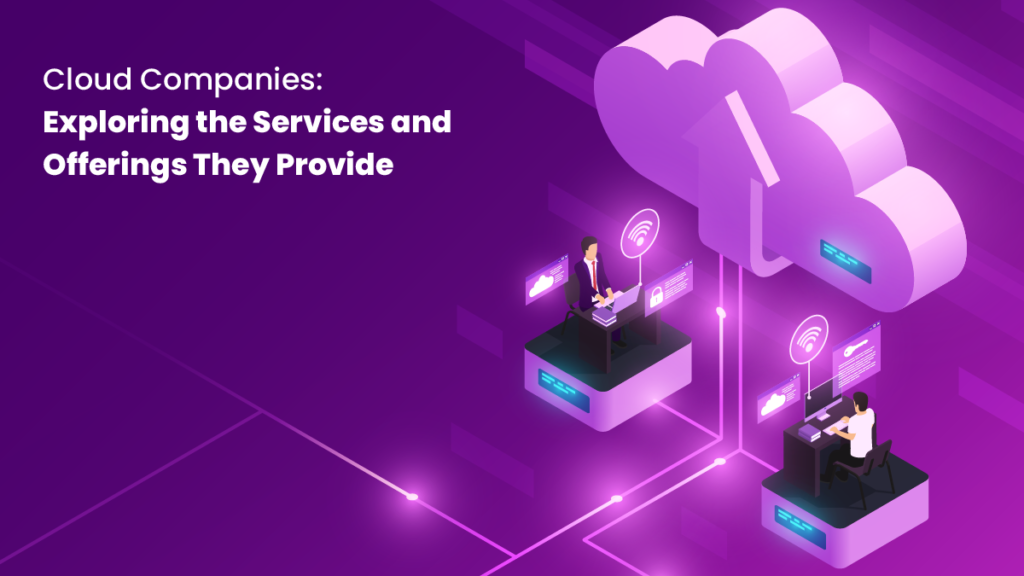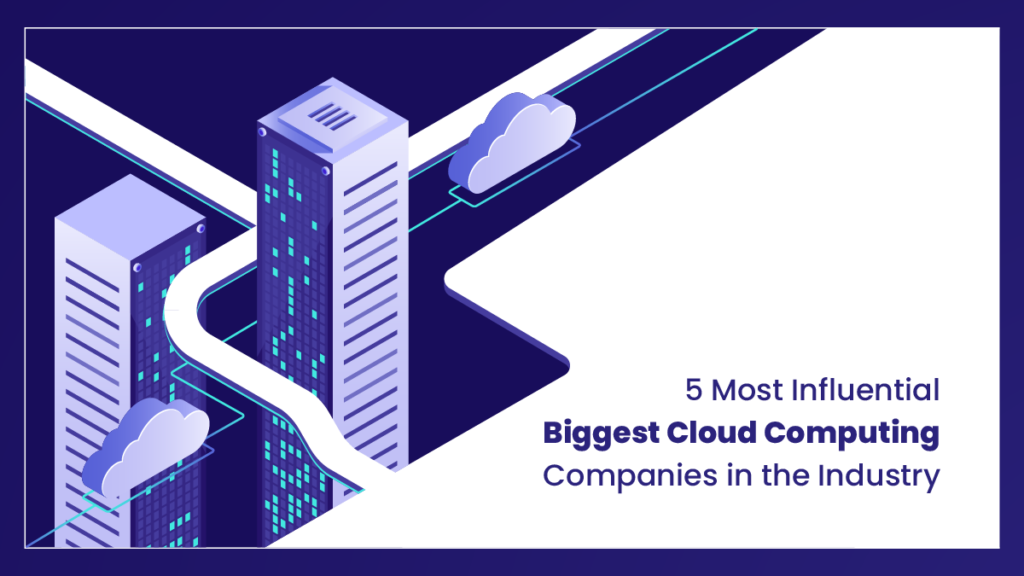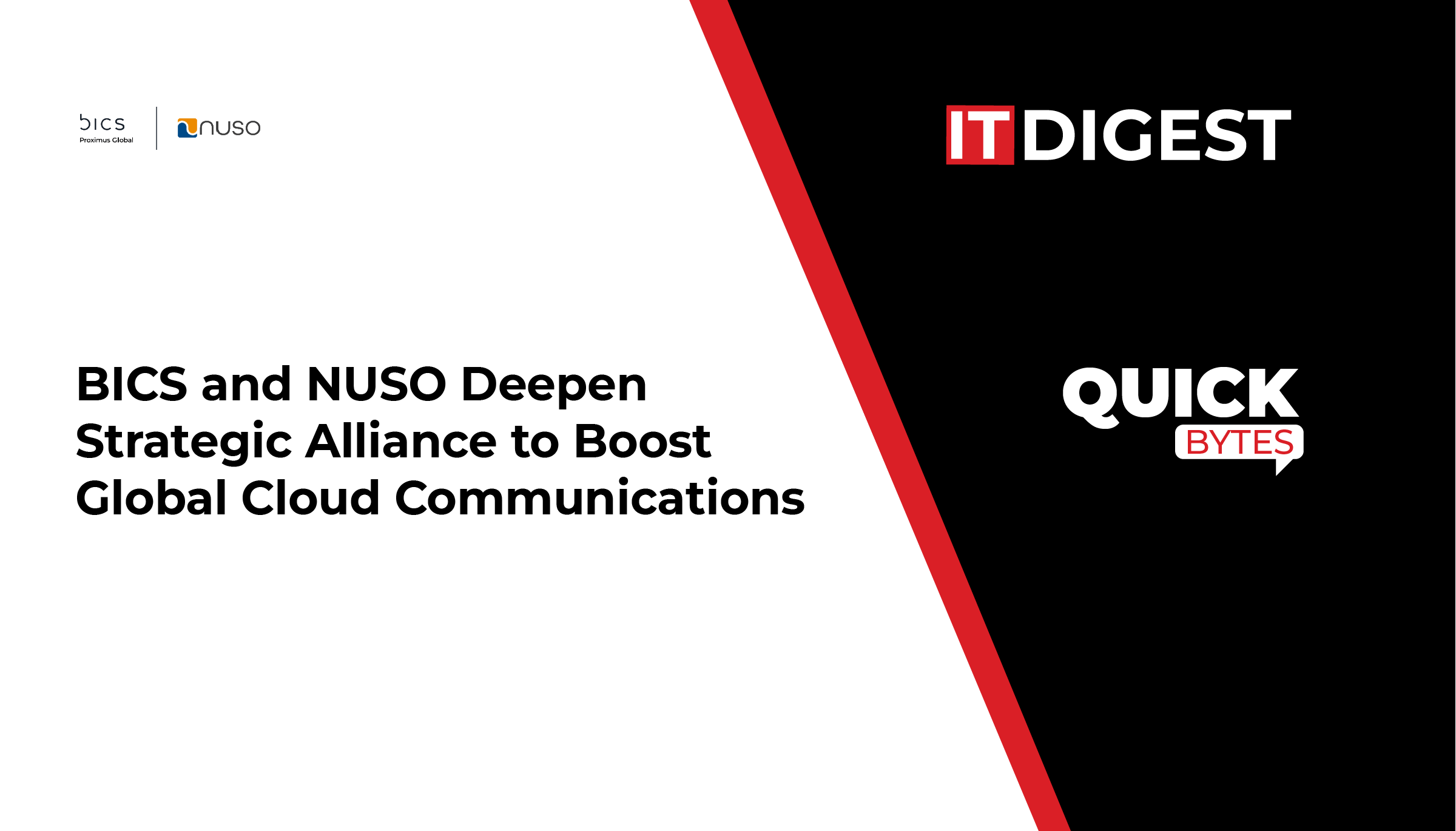We never seem to bring up the fact that big tech companies control a sizable portion of the internet when we talk about regulating this industry; instead, the conversation mainly focuses on online privacy and location monitoring. Every day, we use free apps and services, but we never mention that the data they contain is stored in the cloud. Maybe we should start thinking about the monopoly these few firms have over our data if we want big tech to have less influence over how we live our lives.
Cloud computing has developed into a huge and complicated ecosystem of technology, infrastructure, applications, software, products, and services. Resulting in the development of a multibillion-dollar economy where numerous biggest cloud computing companies compete to hold a significant share of the cloud market.
Navigating and comprehending this cloud ecosystem as a consumer is getting more challenging. Many people still don’t fully understand the cloud sector, which includes the biggest cloud providers such as Amazon Web Services, Microsoft Azure, and Google Cloud Platform.
Today, we will delve deeply into the cloud market and eliminate its mystique. The various cloud services will be discussed, along with the biggest cloud computing companies and their cloud market share in 2021 and 2022.
Cloud Companies: Exploring the Services and Offerings They Provide
Cloud companies provide a range of software- and cloud-based solutions. While some businesses concentrate on a single core competency, others often have experts in all the major facets of cloud computing. Cloud services come in three main categories, including:
- SaaS (Software-as-a-Service): SaaS, a cloud computing solution, distributed cloud applications via the Internet and is often housed on a remote server. Several examples are Zoom, Google Workspace, and Salesforce.

- PaaS (Platform-as-a-Service): PaaS is a service that provides businesses access to a cloud platform for the design and development of applications. Developers may concentrate on programs with this approach while consumers focus on servers, storage, and other networking functions. AWS Lambda and IBM Cloud are two examples of PaaS.
- IaaS (Infrastructure-as-a-Service): IaaS, or infrastructure as a service, enables users to access self-service computing resources such servers, operating systems, and storage. AWS, Microsoft Azure, Google Cloud, Oracle Cloud, IBM Cloud, and Alibaba Cloud are a few examples of IaaS.
The 5 Most Influential Biggest Cloud Computing Companies in the Industry
Here are the 5 biggest cloud computing companies across the globe dominating the industry. Let’s take a look at key facts about these leading cloud providers along with their revenue share for the year 2022.
- Amazon Web Services – $62 Billion
At present, the biggest and most well-known cloud provider is AWS or Amazon Web Services. This company offers IaaS with a number of PaaS and SaaS solutions, as well as services for computing and visualization, storage, container management, and migration.
It has a large collection of infrastructure services to better meet your cloud computing demands and is the safest and most secure platform available. You may create complex, scalable, and adaptable applications as well as host static webpages using AWS. Additionally, it provides DynamoDB for managed databases and Simple Storage Service for scalable cloud storage.

- Microsoft Azure – $51.25 Billion
One of the biggest cloud computing companies, Microsoft Azure is expanding at a rapid pace. Microsoft’s expertise in offering software, operating systems, and collaborative tools to businesses can be credited with a significant part of its success.
This platform, a top competitor to Amazon Web Services, provides a robust hybrid cloud that is appropriate for businesses with massive data centers. Another important area where this company excels is in SaaS (software as a service).
Businesses may benefit from developer productivity, a consistent hybrid cloud experience, artificial intelligence security, and compliance due to Microsoft Azure. Microsoft’s expertise with conventional business tools sets it apart. Additionally, it offers services including Azure Arc, Azure Stuck, and Azure Active Directory.
- IBM Cloud – $21.7 Billion
IBM Cloud, which was first introduced in 2014 and was formerly known as Bluemix, is a cloud computing platform that provides SaaS, PaaS, and SaaS across all the available cloud delivery models.
You can deploy and manage applications on-premises, across the edge, and in public cloud settings with the aid of IBM Cloud Satellite, a multi-cloud tool. The IBM Cloud Satellite offers APIs, cloud services, regulatory features, and security controls across the various operational infrastructures, despite the fact that very few businesses have completely tapped into the multi-cloud space.
By 2021, IBM Cloud offered more than 170 services, such as computing, database, machine learning, analytics, networking, storage, and developer tools. The IBM Cloud Kubernetes Service had a rebranding in May 2017 from Cloud Container Service.
- Google Cloud Platform – $19.2 Billion
A cloud computing platform called Google Cloud provides a number of products, including Google Analytics, Google Maps, Google Drive, and Google Cloud Platform. Despite not being as fiercely competitive as AWS or Microsoft Azure, it has quickly expanded to serve a number of niche sectors. Its AI and ML technology is one feature that makes it unique.
Generally known as GCP, this platform specializes in machine learning, data analytics, and artificial intelligence. It also offers a SaaS. It also offers a variety of tools, from software for managing machine learning (ML) models and deep learning to tools for analyzing emotion, language, and unstructured data like sound.
Given its wide range of offerings, Google Cloud is one of the best options for businesses looking for advanced analytics on their cloud platform. Along with a free trial, it offers a number of adaptable payment options based on pay-as-you-go.
Google Workspace, public cloud infrastructure, and application programming interfaces for machine learning are all included in the Google Cloud Platform, which is a component of Google Cloud. Computing engine virtual machines, cloud Storage for security, stable object storage, cloud SDK command line tools and libraries, and bigQuery data warehouse are some of its additional features.
- Alibaba Cloud – $12 Billion
One of the biggest cloud service providers globally is Alibaba Group’s cloud computing division, often known as Aliyun. It provides services such as elastic computing, database, network virtualization, management, and application services as the leading vendor in the Asia-Pacific region. It also provides cloud database, storage, and management services.
The Singapore-based business has built out a number of networking and operating systems as well as a strong cloud infrastructure. The website is available in many languages, including Mandarin and a few other Chinese dialects, even though the main page is in English.
Alibaba Cloud announced “Tech for Change” in 2019, a global project that encourages people and organizations to embrace technology for the advancement of sustainability, education, and the environment. Based on usage and duration, Alibaba Group primarily derives cloud computing revenue.
Summing Up
The statistics of cloud providers’ market share in 2021 and 2022 show that AWS and Microsoft Azure are tied for first place in the race for cloud dominance. Both provide similar products, services, and prices. Google, IBM, and other clouds, however, continue to improve.
The data center has seen a noteworthy alteration as a result of the way cloud computing has altered the globe over the past ten years. Cloud computing and artificial intelligence technologies are linked, and businesses now view the cloud not as an optional upgrade but as a vital component of their operations. There is still a lot of ambiguity about cloud computing costs and security.
The emergence of numerous cloud companies, however, aids in the resolution of all the problems. A lot of new players have just entered the cloud industry, which is undergoing rapid transformation. The best cloud computing firms give users the highest level of security and the best value, creating a win-win situation for both the supplier and the user.

































